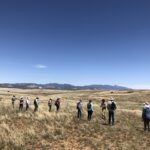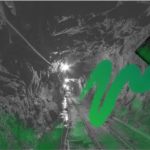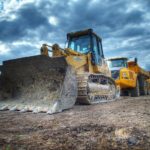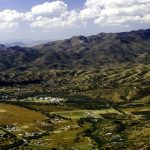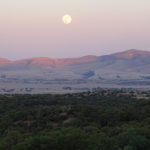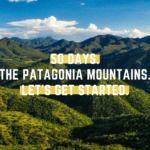Raul Grijalva and Blanca Guerra are candidates for US House of Representative District #3. Here are their positions on issues relevant to PARA’s mission to monitor the activities of industrial developers, such as mining corporations, as well as government agencies, to make sure their actions have long-term, sustainable benefits to our public land, our watershed, and our communities.
1. When considering an industry’s promise to bring jobs to our community, what other factors would you consider when deciding whether or not the overall impact of such activity would ultimately be good for the long term sustainability of our communities?
RAUL GRIJALVA
Job creation is a top priority. There’s no excuse for letting unemployment linger for so long when some people are making more money than ever. What we can’t do is throw cost-benefit analysis out the window. Jobs aren’t created in a vacuum. New industries need to build relationships in their community and can’t come in expecting taxpayer handouts. Factories, office parks, open pit mines and every other business have positive and negative impacts on their surroundings, and we have to be honest and realistic about them.
Economic development plans have to complement the long-term vision a community has for itself. That’s one reason Congress passed the National Environmental Policy Act (NEPA) to provide for an environmental review – including consideration of relevant science and input from the public – of any major federal action that will impact the environment. We can’t go back to the days when heavy industry called all the shots and locals were left with a big cleanup bill.
NEPA provides an important layer of review and gives communities a needed voice, but it doesn’t always ensure sustainable development. It only looks at proposed projects and doesn’t provide for forward planning. We need to remember, whenever we’re making a big economic decision, that job plans have to account for the values of the communities they affect. Will local residents see economic benefit, or will the employees be brought in from elsewhere? Will the product or service improve local quality of life, or enrich company executives at local expense? Often businesses will pass this test. Sometimes they will not.
BLANCA GUERRA
Could this project be done in another place; How much revenue would the project bring to the community; How many communities would the project support; Economic growth; Present unemployment rate; At this time, I would also consider the tax increases needed in order for the government to continue to maintain the unemployed budget and those on state aid.
2. As we desert dwellers are aware, water is a precious resource. What actions will you take to assure protection of the quality and quantity of our water resource?
RAUL GRIJALVA
A recent report from the U.S. Geological Survey highlighted the fragility of Arizona’s groundwater situation. Due to climate change and demand from a growing population, aquifer levels are diminishing at an alarming rate. We need better policies.
One of the most effective ways to address climate change is to reduce the amount of emissions through a revenue neutral carbon tax. This will reduce climate change and protect ground water supplies. The revenue generated can offset personal taxes, pay down the deficit, and be used to invest in conservation programs designed to mitigate the impacts of climate change and drought. I am an original cosponsor of the Save Our Climate Act, a bill that achieves these goals.
Preventing water pollution is as important as preventing overuse. From the Clean Water Act, Safe Water Drinking Act and other landmark environmental laws to grant and loan programs administered by the Environmental Protection Agency, the U.S. Department of Agriculture and others, the federal government is an important partner in protecting our water resources. Unfortunately, these programs and laws have been under attack by House Republicans. Their anti-regulatory agenda ignores the long-term environmental and social damage of weak laws that allow heavy industry to pollute without consequences. Water is scarce in the desert, and we must do what we can to protect it.
BLANCA GUERRA
Central Arizona Project. Expansion of it’s resource should at all times be considered.
3. If you support open pit mining in the Santa Rita Mountains, Canelo Hills, Patagonia Mountains, and the San Rafael Valley, what is your proposed solution for the economic bust that will happen after the mines play out in 20 years (historical track record and what current mining applicants forecast as period of operation)?
RAUL GRIJALVA
The short-term economic benefits of open pit mining across Southern Arizona do not outweigh the long-term environmental damage that will inevitably follow. Economic development should complement local visions for their future. I am not opposed to mining in general, but existing proposals in the Santa Rita area do not meet our community’s criteria for approval.
BLANCA GUERRA
I believe that 20 years of economic growth is good. I would ask the local businesses if they want 20 years of prosperous growth.
The surrounding area will only expand if the owners want to sell or legally, by right of ownership, divide their property.
I may be erred, but I do not believe there are plans for the county to sell real property at this time.
I challenge those who oppose Rosemont Copper to come up with their own plan to bring 20 years of projected economic growth, revenue, jobs to Southern Arizona and prosperous years to the local community as an alternate to the mines.
4. What types of support do you suggest for fostering our existing economic business models such as local food production, wineries, eco-tourism, heritage tourism, etc?
RAUL GRIJALVA
According to the U.S. Department of Agriculture, local food sales total $5 billion annually. We can’t afford to ignore this important sector of our economy. Enhancing and incentivizing local food production should be a priority for Congress.
I co-sponsor the Preserving Healthy Food for the Hungry Act, which provides grants to land-grant colleges and universities to improve access for low-income families to locally produced fruits and vegetables, and the Local Food, Farms, and Jobs Act, which creates insurance plans for diversified farming, helps schools buy local food, and allows customers to use SNAP cards at farmers markets. Our food policies are an economic issue, and we need to make sure local farmers get the support they need to compete with conglomerates that don’t always have local customers in mind.
Preventing the destruction of valuable scenery and natural resources is important for tourism in Southern Arizona. People travel from all over the world to enjoy our unspoiled natural views, our unique mountains and deserts, and our wilderness areas. If those become polluted or despoiled, our entire regional economy will suffer. Hotels will have fewer visitors, restaurants and markets will have fewer customers, and local tourism companies will have fewer clients. That’s not an economic vision I support.
BLANCA GUERRA
There will be more people driving through the area, such as workers, contractors and subcontractors. Those individuals will be bringing more customers to local businesses.
If I were Rosemont, I would gladly participate with fostering local businesses. Ask them.
5. Thomas Jefferson said : “I am not an advocate for frequent changes in laws and constitutions, but laws and institutions must go hand in hand with the progress of the human mind. As that becomes more developed, more enlightened, as new discoveries are made, new truths discovered and manners and opinions change, with the change of circumstances, institutions must advance also to keep pace with the times. ”
The Mining Law of 1872 was enacted to develop this part of the country and at the time mining used dramatically different extraction methods than today’s industry. What will you do to either outright cancel this law OR in the alternative, bring it to modern times and empower local communities to have control over their resources?
RAUL GRIJALVA
Mining law reform is absent from the national conversation about deficit reduction. It shouldn’t be. Every year we fail to reform the Mining Law of 1872, the American people are robbed of millions of dollars in lost tax revenue. I’ve asked the Government Accountability Office to put together a forthcoming report on the market value of minerals extracted from all federal land. Billions of dollars worth of natural resources are being extracted from public land at taxpayer expense and no one is keeping track of their worth or what revenue is being lost due to antiquated regulation. We have to fix this.
Until legislation is passed that implements fair royalty rates, I will continue to look for ways to, at the very least, determine the value of minerals extracted from public property. When people understand the opportunity costs associated with the status quo, the demand for reform will be undeniable.
BLANCA GUERRA
I believe home buyers receive disclosure of mines etc… in the area. That is the time when property buyers should have made the decision not to buy property there.
Mother earth decided where she was going to create copper. One cannot decide to plant, grow and harvest copper.
6. HR 3446, the “Fair Payment for Energy and Mineral Production on Public Lands Act” will require mining companies to pay a royalty, provide safeguards for clean water, and give communities and agencies a say about where mining will be permitted. What will you do to support this House bill or its Senate version?
RAUL GRIJALVA
I am a cosponsor of H.R. 3446 and will continue to work with my colleagues in the Natural Resources Committee to ensure its passage. This is a conversation we need to have.
BLANCA GUERRA
I would ask for specifics as to where and how the funds would be directed.
7. What other visions of sustainable economic activities do you have for our area?
RAUL GRIJALVA
From the Grand Canyon to the Sonoran Desert National Monument, Arizona has spectacular public lands, and there is tremendous potential for these protected spaces to complement existing business models across Southern Arizona. Areas set aside for conservation and recreation are a pillar of our job market and our way of life.
My Santa Cruz Valley National Heritage Area Act, which I introduced in May of 2011, would establish a new public-private approach to managing our valuable Southern Arizona natural resources. A National Heritage Area designation is a relatively new concept whereby Congress sets up a system for federal, local, public and private entities to preserve an area’s natural, historic, cultural and scenic value. It is a non-regulatory, voluntary approach to promoting conservation and would be an excellent complement to other local, sustainable future projects.
My bill would designate around 3,325 square miles of the Santa Cruz Valley as a National Heritage Area. I will continue to fight for this and other proposals that bring people together to improve our local economy rather than play them against one another.
As a non-profit organization with a pending IRS 501-c-3 application, Patagonia Area Resource Alliance (PARA) can not endorse specific candidates. PARA can ask questions of all candidates regarding their positions on issues relevant to PARA’s mission.

